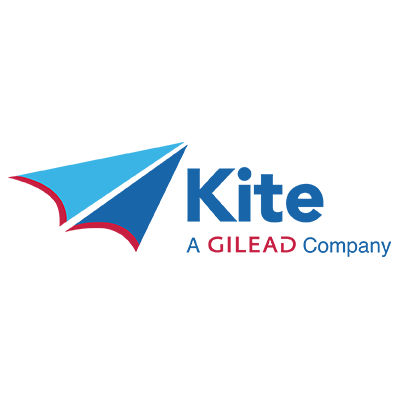REDWOOD CITY, Calif.--(BUSINESS WIRE)--Arcellx, Inc. (NASDAQ: ACLX), a biotechnology company focused on delivering a new class of innovative immunotherapies for patients with cancer and other incurable diseases, announced today that a late-breaking abstract for its novel D-Domain binder in anitocabtagene autoleucel (anito-cel) has been accepted for presentation at the 2026 Tandem Meetings. BCMA-directed CAR T therapies are effective in treating relapsed and/or refractory multiple myeloma, with the potential for deep and durable responses. Anito-cel is partnered with Kite, a Gilead Company.
The poster (903) describes a preclinical study that explores the role of binder attributes in the specificity of BCMA-directed CAR T cells. CAR constructs representative of cilta-cel (dual VHH), ide-cel (scFv), and anito-cel (D-Domain) were assessed preclinically. In summary, the results showed no tonic signaling or off-target activity with the D-Domain binder, supporting a favorable safety profile. CAR T activation and cytokine release, reflective of tonic signaling, were observed for dual VHH and scFv binders in the absence of BCMA antigen, but not with the D-Domain. Off-target activity, specifically against Claudin-9 (CLDN9), was observed with the dual VHH binder, and no off-target activity was observed with the scFv binder or the D-Domain. Claudin-9 is a member of the Claudin family and is expressed at the tight junctions of endothelial and epithelial barriers. Therefore, binding of CLDN9 in addition to BCMA could increase the risk of off-target toxicities. Claudin family proteins have been implicated in maintaining the structural and functional integrity of the blood–brain and gut–vascular barriers, and disrupted Claudin function is linked to inflammatory, neurodegenerative, and gut disorders.
The Tandem Meetings are being held February 4-7, 2026, at the Salt Palace Convention Center in Salt Lake City, Utah. A copy of the presentation can be accessed on Arcellx’s website at www.arcellx.com under the Pipeline/Scientific publications section.
Tandem Presentation Details
Title and ID: D-Domain Binder In Anitocabtagene Autoleucel Shows Absence of Tonic Signaling and Cross-Reactivity Profile (poster ID: 903) (abstract: 29612)
Speaker: Alexandra Witter, PhD
Session: Poster Session: Late-Breaking Poster Abstracts
Session Date: Thursday, February 5, 2026
Session Time: 6:30 – 8:00 p.m. MT
Location: Hall AB
Abstract Details
Title
D-Domain Binder in Anitocabtagene Autoleucel Confers Potent Anti-Tumor Activity while Minimizing Tonic Signaling and Off-Target Reactivity
Authors
Alexandra Witter, Lawrence P. Andrews, Matthew J. Frigault, Krina K. Patel, Ciara L. Freeman, Sigal Shachar
Introduction
BCMA-directed CAR-T cell therapies are effective in treating relapsed and/or refractory multiple myeloma, with potential for deep and durable responses. Anitocabtagene autoleucel (anito-cel) has demonstrated an encouraging efficacy and safety profile, with no cases of delayed neurotoxicities or immune effector cell-associated enterocolitis (IEC-EC) observed to date (Patel et al., ASH 2025). This profile differentiation may be attributable to the different BCMA-targeting binders used in these CAR-T cell therapies, as current standard-of-care BCMA-directed CAR-T cell therapies either demonstrate suboptimal efficacy with idecabtagene vicleucel (ide-cel), or a risk of delayed toxicities such as parkinsonism, cranial nerve palsies or IEC-EC with ciltacabtagene autoleucel (cilta-cel). Anito-cel utilizes a novel synthetic D-Domain binder, with binding to BCMA characterized by a fast off-rate and displays minimal antigen-independent aggregation (Hart et al., ASH 2025).
Objectives
This study aims to further explore the contribution of binder attributes towards specificity of BCMA-directed CAR-T cells.
Methods
We transduced CAR constructs representative of cilta-cel (dual VHH), ide-cel (scFv) and anito-cel (D-Domain) into healthy donor T cells. Key attributes such as phenotypes associated with tonic signaling and target-specific activity were compared between surrogate CAR-T cells with matched CAR-positive frequency and vector copy number.
Results
Dual VHH CAR-T cells show increased expression of FAS, ICAM and TRAIL, compared to D-Domain CAR-T cells, in the absence of antigen-expressing cells suggesting a tonic signaling phenotype. D-Domain CAR-T cells did not show expression of activation markers (CD69, 4-1BB) or IFNγ release, which were elevated 3-fold and 39-fold respectively, with dual VHH CAR-T cells. As previously reported from a membrane surface protein array, cilta-cel bound to Claudin-9 (CLDN9) in addition to BCMA (EPAR EMA/594558/2022, EMA 2022). CLDN9 is expressed in tight junctions of folliculo-stellate cells in the anterior pituitary gland and cerebellum. In this study, dual VHH CAR-T cells stimulated with CLDN9++ HEK293 cells demonstrated upregulation of activation markers, IFNγ release and target cell killing. CLDN9-induced activity was not observed with D-Domain or scFv CAR-T cells under any conditions tested.
Conclusion
Off-target activity with dual VHH CAR-T cells was seen against CLDN9, suggesting that the high avidity dual VHH binder could recognize other cryptic epitopes and lead to off-tumor binding and toxicities. The D-Domain exhibits favorable features such as stability and rapid off-rate differentiating it from the dual VHH binder, which may contribute to the enhanced target specificity and lack of tonic signaling described here.
About Anitocabtagene Autoleucel (anito-cel)
Anitocabtagene autoleucel (anito-cel, previously CART-ddBCMA) is the first BCMA-directed CAR T-cell therapy to be investigated in multiple myeloma that utilizes Arcellx’s novel and compact binder known as the D-Domain. The small, stable D-Domain binder enables high CAR expression without tonic signaling and is designed to quickly release from the BCMA target. This combination may allow for the effective elimination of multiple myeloma cells without severe immunotoxicity. Anito-cel has been granted Fast Track, Orphan Drug, and Regenerative Medicine Advanced Therapy Designations by the U.S. Food and Drug Administration.
About Arcellx and Kite Collaboration
Arcellx and Kite, a Gilead Company, formed a global strategic collaboration and license agreement to co-develop and co-commercialize anito-cel for patients with multiple myeloma. Anito-cel is currently being developed in a Phase 2 registrational pivotal study and a global Phase 3 randomized controlled study for relapsed and/or refractory multiple myeloma (RRMM). Kite and Arcellx will jointly commercialize the anito-cel asset in the United States, and Kite will commercialize the product outside the United States.
About Arcellx, Inc.
Arcellx, Inc. is a clinical-stage biotechnology company focused on delivering a new class of innovative immunotherapies for patients with cancer and other incurable diseases. Arcellx believes that cell therapies are one of the forward pillars of medicine, and Arcellx's mission is to advance humanity by developing cell therapies that are safer, more effective, and more broadly accessible. For more information on Arcellx, please visit www.arcellx.com. Follow Arcellx on X @arcellx and LinkedIn.
Forward-Looking Statements
This press release contains forward-looking statements within the meaning of Section 27A of the Securities Act of 1933, as amended, and Section 21E of the Securities Exchange Act of 1934, as amended. All statements in this press release that are not purely historical are forward-looking statements, including, but not limited to, statements regarding: anito-cel’s pharmacology profile, including the potential benefits of the D-Domain; the expectation of anito-cel to be a significant or differentiated CAR-T treatment option for RRMM; the effectiveness of BCMA-directed CAR T therapies in treating RRMM as well as the potential for deep and durable responses; the potential increase in the risk of off-target toxicities associated with the binding of CLDN9 in addition to BCMA; and the potential impact of Arcellx’s product candidates and platforms on patients and cell therapy. The forward-looking statements contained herein are based upon Arcellx’s current expectations and involve assumptions that may never materialize or may prove to be incorrect. These forward-looking statements are neither promises nor guarantees and are subject to a variety of risks and uncertainties, including those set forth in Part II, Item 1A (Risk Factors) in the Quarterly Report on Form 10-Q for the quarter ended September 30, 2025, filed with the Securities and Exchange Commission (SEC) on November 5, 2025, and the other documents that Arcellx may file from time to time with the SEC. These forward-looking statements are made as of the date of this press release, and Arcellx assumes no obligation to update or revise any forward-looking statements, whether as a result of new information, future events, or otherwise, except as required by law.








